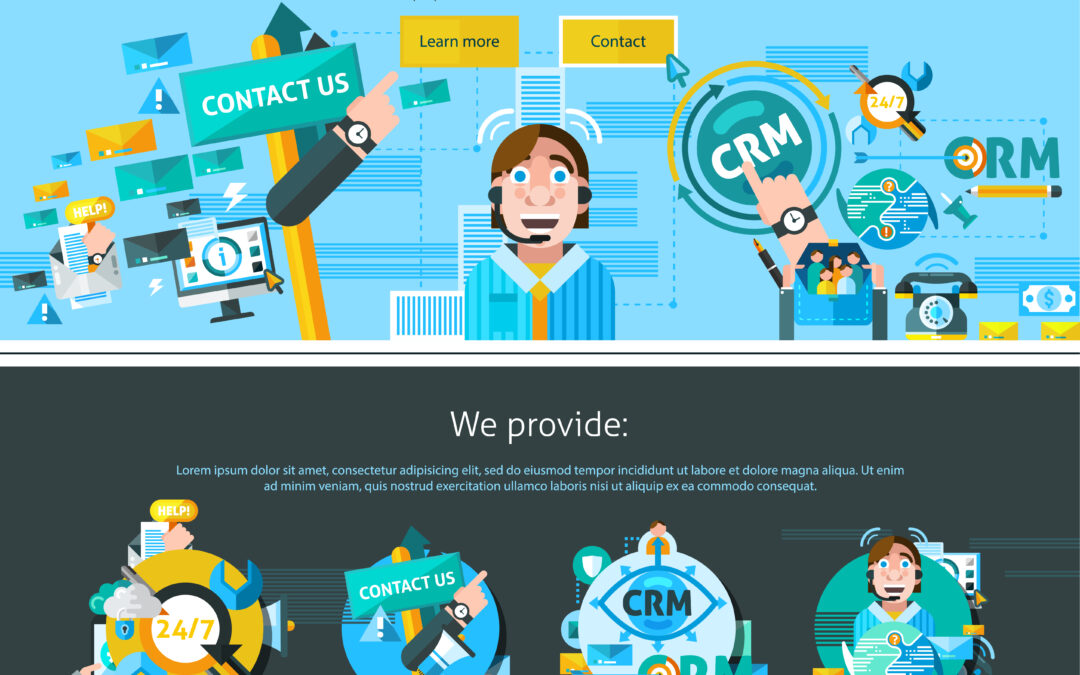In today’s hyper-competitive business landscape, sales teams need more than spreadsheets and sticky notes to keep up with leads, close deals, and foster long-term client relationships. That’s where a Sales Customer Relationship Management (CRM) system steps in. From streamlining workflow to improving customer satisfaction, a sales CRM system is the backbone of modern sales operations.
In this article, we will explore how a sales CRM system benefits a sales team, breaking down the technical and strategic advantages in detail. Whether you’re a startup looking to scale or an enterprise aiming to optimize operations, this guide will show you why adopting a CRM could be the best business decision you make.
Table of Contents
What Is a Sales CRM System?
A Sales CRM (Customer Relationship Management) system is a software solution that helps sales teams manage relationships with potential and existing customers. It centralizes customer interactions across various touchpoints such as email, phone, social media, and website forms.
Think of it as a digital command center that gives sales professionals a comprehensive view of their sales pipeline—from lead generation to deal closure and beyond.
Popular sales CRMs include:
Why Sales Teams Need a CRM
The old way of managing leads and customers—using spreadsheets, post-it notes, or fragmented communication—just doesn’t cut it anymore.
Here’s why CRM is essential:
-
Disorganization kills deals: When sales reps can’t find info quickly, leads slip through the cracks.
-
Manual tracking wastes time: Sales teams should spend time selling, not updating spreadsheets.
-
Inconsistent communication: Without centralized records, sales messaging becomes fragmented.
CRM systems help address these issues by providing a structured, data-driven, and collaborative environment.
Centralized Customer Data
Imagine a scenario where your sales rep talks to a lead but forgets key details from their last interaction. That’s a recipe for lost trust.
A sales CRM ensures that every interaction is logged and accessible in one place. This includes:
-
Contact information
-
Call logs and email threads
-
Notes from meetings
-
Purchase history
-
Customer preferences
With everything in one dashboard, sales teams stay informed, reduce errors, and offer more personalized service.
Bonus Tip:
Many CRMs offer customizable fields and segmentation, making it easy to categorize customers by industry, region, deal size, and more.
Improved Lead Management and Scoring
Not all leads are created equal. Some are just browsing; others are ready to buy. A CRM system helps qualify and score leads, so sales reps know who to prioritize.
Benefits of CRM in Lead Management:
-
Automatic lead capture from web forms, email campaigns, and social media.
-
Lead nurturing workflows that engage prospects over time.
-
Lead scoring based on engagement, demographics, and behavior.
This improves conversion rates and ensures your team focuses on the most promising opportunities.
Automation of Repetitive Tasks
Let’s be honest—nobody loves data entry.
Sales CRMs take over repetitive tasks such as:
-
Logging calls and emails
-
Sending follow-up reminders
-
Assigning leads to reps
-
Generating quotes and invoices
-
Updating pipeline stages
By freeing up your team from admin work, they can spend more time building relationships and closing deals.
According to Nucleus Research, CRM systems deliver an average ROI of $8.71 for every $1 spent—largely due to automation.
Enhanced Communication and Collaboration
Whether your sales team is 5 people or 50, communication gaps can be fatal to customer relationships.
CRM systems offer features like:
-
Shared customer records
-
Internal team messaging
-
Calendar syncing and meeting scheduling
-
Commenting on deals or tasks
This ensures everyone stays on the same page, especially in remote or hybrid environments. Your team can collaborate effectively, regardless of location.
Better Sales Forecasting
If your sales pipeline is a black box, you’re flying blind.
CRMs provide real-time insights into sales data, helping managers forecast future revenue more accurately. You can:
-
Analyze win/loss rates
-
Track deal velocity
-
Identify bottlenecks
-
Review historical performance
This data enables better decision-making and ensures the business can plan for growth confidently.
Performance Tracking and Analytics
Sales CRM systems come packed with dashboards and reporting tools that allow you to measure what matters.
You can track:
-
Individual rep performance
-
Number of calls/emails made
-
Conversion rates by stage
-
Top-performing products or services
These insights help you coach underperformers, reward top performers, and optimize sales strategy continuously.
Integration with Other Business Tools
A modern sales CRM doesn’t operate in isolation—it integrates with your tech stack.
You can connect your CRM to:
-
Email marketing tools like Mailchimp or ConvertKit
-
Customer support platforms like Zendesk
-
Accounting software like QuickBooks or Xero
-
E-commerce platforms like Shopify or WooCommerce
This unified ecosystem allows for smoother workflows and more powerful customer insights across departments.
Mobile Accessibility and Remote Sales
Today’s sales reps are often on the move. A CRM with a mobile app ensures they’re never out of touch with customer data.
Mobile CRMs let you:
-
Access contact info on the go
-
Log notes after meetings
-
Update deal stages in real time
-
Receive push notifications for follow-ups
In a world where remote and hybrid work is the norm, this kind of flexibility is a game-changer.
Case Studies: Real-World CRM Success Stories
1. HubSpot CRM at Trello
Trello’s sales team used spreadsheets to manage partnerships. After adopting HubSpot CRM, they streamlined lead tracking and increased deal closures by 25% within six months.
2. Zoho CRM at Makemytrip
India’s largest travel booking portal, Makemytrip, integrated Zoho CRM and achieved a 32% increase in upselling success, thanks to better segmentation and automation.
3. Salesforce at Adidas
Adidas implemented Salesforce to unify their B2B and B2C sales pipelines, leading to global visibility and improved partner communication.
These examples prove that CRM adoption delivers measurable ROI—not just operationally but in revenue terms.
Choosing the Right Sales CRM
Not all CRMs are created equal. Choosing the right one depends on:
-
Team size: Some CRMs are better for small businesses (e.g., Pipedrive), while others scale with you (e.g., Salesforce).
-
Budget: Free CRMs like HubSpot are great for startups, while premium tools offer deeper features.
-
Integration needs: Ensure your CRM connects with your existing tools.
-
Ease of use: If it’s not user-friendly, your team won’t use it.
Check out detailed comparisons at G2 and Capterra.
Conclusion
A Sales CRM system is no longer optional—it’s essential. From streamlining lead management and boosting collaboration to providing deep insights and automation, CRMs supercharge every aspect of the sales process.
When used correctly, a CRM does more than store customer data—it becomes a strategic asset that fuels growth, improves team performance, and enhances customer relationships.
If your sales team is still relying on outdated tools, now is the time to upgrade. Choose the right CRM, train your team, and watch your sales soar.














